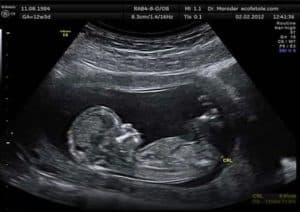Our gut microbiome—the trillions of bacteria living inside us—has been tied to everything from mental health to autoimmune disease. Now, new research suggests a mother’s microbiome may also influence the risk of autism in her children.
In a study published in The Journal of Immunology, University of Virginia scientists found that gut microbes in pregnant mice affected the brain development of their pups. The key player was a molecule called interleukin-17a (IL-17a), which helps fight infections but can also spark inflammation.
Mice with microbiomes that triggered IL-17a responses gave birth to pups with autism-like behaviors, including social difficulties and repetitive actions. When researchers blocked IL-17a—or altered the microbiome through fecal transplants—the outcomes shifted, showing just how pivotal the mother’s gut health could be.

While these findings are preliminary and based on animal models, they raise important questions about how maternal microbiomes shape brain development in humans. Researchers stress that more work is needed, but the study opens the door to exploring new ways to prevent or treat neurodevelopmental disorders like autism.





